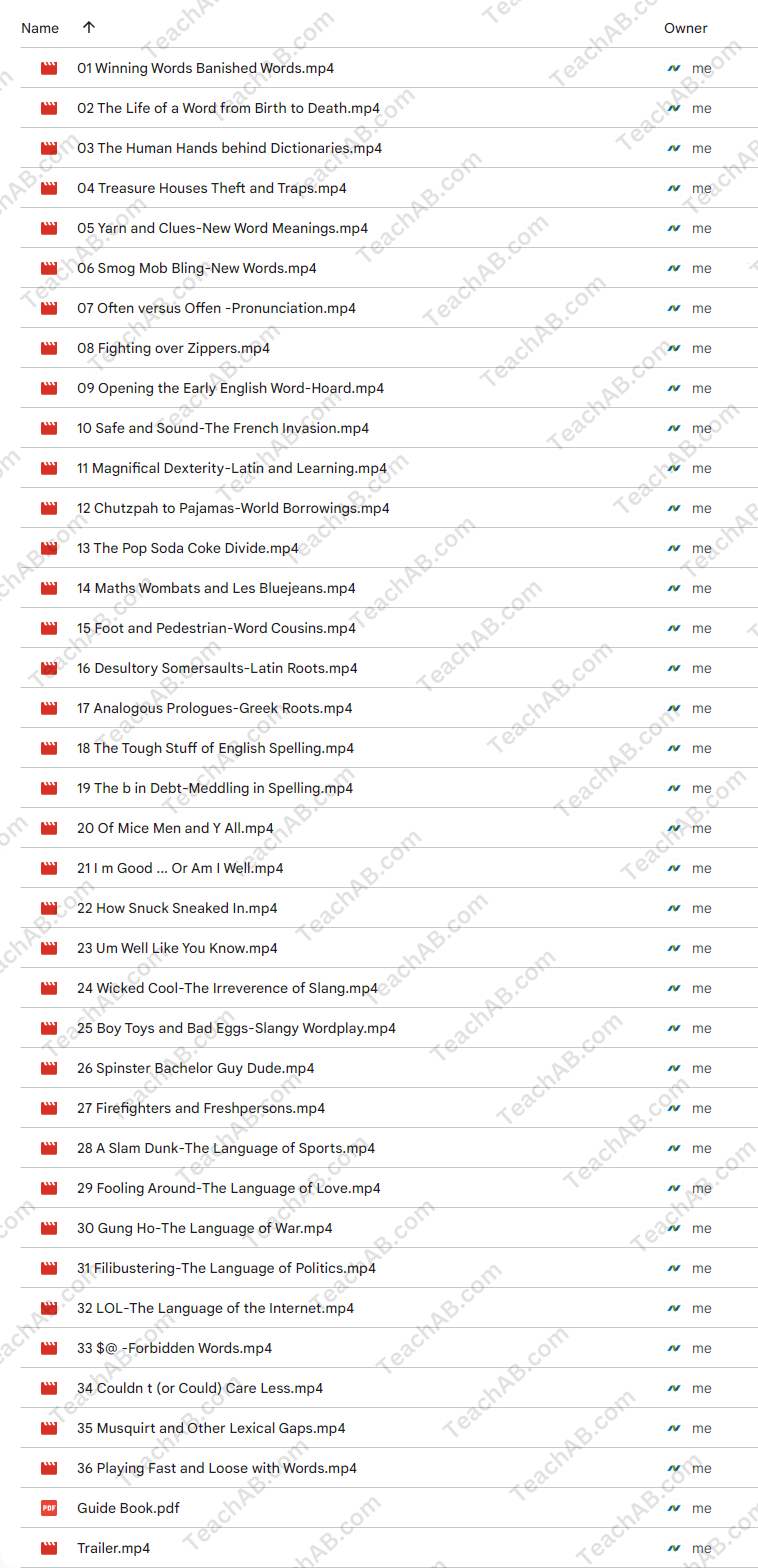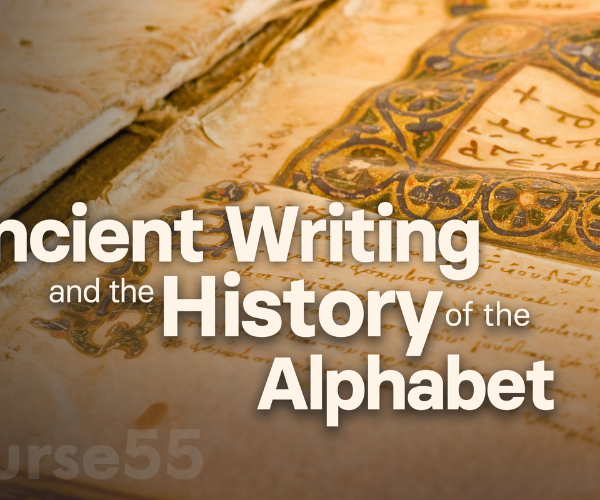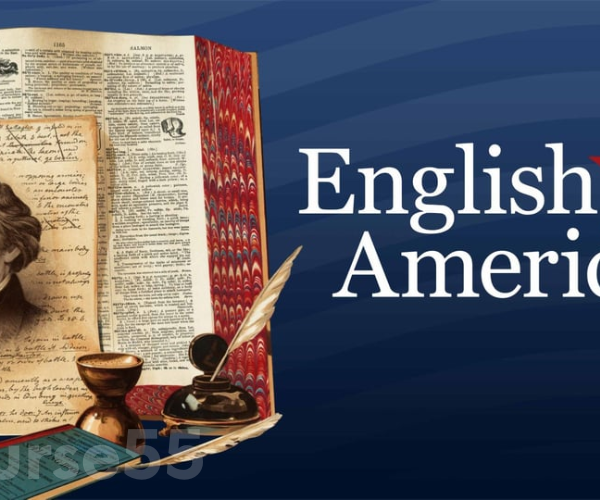The Secret Life of Words: English Words and Their Origins By Anne Curzan
$339.00 Original price was: $339.00.$5.00Current price is: $5.00.
The Secret Life of Words: English Words and Their Origins
Content Proof:
In her book, The Secret Life of Words: English Words and Their Origins, Anne Curzan takes readers on an enthralling journey through the intricate landscape of the English language. As a professor at the University of Michigan, Curzan brings her expertise to the forefront, elucidating the historical evolution and contemporary transformations of English in a manner that is both accessible and engaging. From its Germanic roots to its modern-day manifestations, she highlights how words have morphed and adapted over time, influenced by a multitude of forces including technology, globalization, and the ever-shifting social dynamics. This work is not just a mere exploration of etymology; it represents a reflection on how language mirrors the life experiences of its speakers.
The structure of the book is meticulously designed, featuring 36 thoughtful lectures that delve into various aspects of language. Curzan’s approach combines storytelling with rigorous analysis, making complex linguistic concepts not just understandable but also delightful to ponder. Whether she is examining the life cycle of a word, shedding light on recent additions to the lexicon like “bling” and “email” or discussing the implications of political correctness on language evolution, Curzan invites her audience to engage with English on a deeper level. As readers, we are no longer passive observers; we become active participants in the exploration of our own linguistic heritage.
Throughout the book, Curzan emphasizes that words are not static entities; rather, they are dynamic and alive, constantly evolving alongside the culture that uses them. The journey of a word can be likened to a river, winding through the ages, picking up influences from various tributaries before eventually reaching the ocean of contemporary usage. The metaphor underscores a crucial point: understanding the origins of words enriches our comprehension of language itself, allowing us to appreciate the intricate tapestry of connections that bind us through shared history and experience.
Historical Evolution of the English Language
One of the most captivating elements of Curzan’s lectures is her exploration of the historical evolution of the English language. Encompassing influences from Latin, Norse, and French, the development of English is marked by a tapestry of cultural exchanges. Here’s a closer look at some of the defining periods:
| Period | Influence | Key Characteristics |
| Old English | Germanic tribes | Utilized by Anglo-Saxons; heavily influenced by Latin during the Christianization. |
| Middle English | Norman Conquest | Introduction of French vocabulary; notable authors like Chaucer popularized the use. |
The historical narratives surrounding these periods reveal a language in flux, shaped by socio-political events, migrations, and the cross-pollination of cultures. Curzan uses vivid storytelling to illustrate how significant historical milestones like the Norman Conquest altered the language landscape. The introduction of French vocabulary after 1066 not only enriched the lexicon but also created social stratification among classes, evident in the use of different words for animals (e.g., ‘cow’ vs. ‘beef’).
Equally intriguing is the modern influence of technology and globalization on language. As slang and neologisms seep into everyday usage with increasing frequency, we witness how words evolve rapidly in response to societal needs an aspect Curzan highlights effectively. Words like ‘selfie’ and ‘hashtag’ are not merely fads; they reflect significant societal shifts in communication methods propelled by burgeoning digital platforms.
The Life Cycle of a Word: Challenges and Triumphs
Curzan presents a fascinating discourse on the life cycle of a word, which is akin to a living organism undergoing different stages of development. Words are born, grow, face challenges, and sometimes, fade into oblivion. Curzan posits that the journey of a word often mirrors the societal contexts in which it exists.
Consider the entry of the term ’email’ into the language as a prime example. Initially a technical term confined to specialist discourse, it burgeoned into everyday vernacular, reflecting a wider trend of digital communication. To illustrate the dynamic journey of such words, here is a summary of their lifecycle stages:
| Stage | Description |
| Emergence | Introduction into the lexicon, often through technological or cultural shifts. |
| Adoption | Acceptance and wider usage in various contexts, indicating societal relevance. |
| Evolution | Adaptations in meaning or usage as cultural dynamics shift. |
| Decline | Possible irrelevance or replacement by new terms, leading to obsolescence. |
Through this lens, Curzan effectively imparts that words are caught in a dance interplaying with culture, technology, and the relentless passage of time. They can serve as touchstones for societal change, representing values, traditions, and innovations of their times.
Political Correctness and Language Evolution
One of the more thought-provoking themes in Curzan’s discussions revolves around political correctness in language evolution. The shift towards more inclusive and sensitive language has sparked intense debates, creating polarized views among different audience segments. On one hand, advocates argue that the evolution of language reflects a necessary and moral progress; it is a tool for fostering respect and understanding in increasingly diverse societies. On the other hand, critics claim that the emphasis on political correctness stifles free speech and curtails spontaneous expression.
Curzan navigates these contentious waters with sensitivity, providing insightful examples of terms that have evolved due to changing societal norms. For instance, consider the transition from using “********ped” to “person with a disability.” This evolution showcases the sensitivity toward how language shapes our perception of identity and the importance of empowering individuals through respectful terminology.
Furthermore, Curzan’s reflections on this topic underline a deeper philosophical inquiry into the purpose of language itself whether it is to connect us or to divide us. By providing rich examples and reflecting on real-life implications, she fosters a dialogue on the delicate balance between achieving inclusivity while honoring freedom of expression.
Conclusion
In conclusion, The Secret Life of Words: English Words and Their Origins by Anne Curzan is not merely an academic exploration; it is a rich tapestry that interweaves history, culture, and personal reflection into a cohesive narrative about the essence of the English language. Curzan’s ability to draw connections between linguistic evolution and societal change makes this work impactful for both language enthusiasts and casual readers.
The book serves as a reminder that understanding our words means understanding our shared human experience a connection that runs deeper than syntax or grammar. Through her vibrant storytelling and keen insights, Curzan invites us to delve into the dynamic interplay of language and culture, encouraging a newfound appreciation for the words we often take for granted.
Frequently Asked Questions:
Business Model Innovation: We use a group buying strategy that enables participants to share costs and access popular courses at lower prices. This approach helps individuals with limited financial resources, although it may raise concerns among content creators regarding distribution methods.
Legal Considerations: Our operations navigate complex legal issues. While we do not have explicit permission from course creators to resell their content, there are no specific resale restrictions mentioned at the time of purchase. This lack of clarity allows us to offer affordable educational resources.
Quality Control: We guarantee that all course materials provided are identical to those offered directly by the creators. However, please note that we are not official providers. As a result, our services do not include:
– Live coaching calls or sessions with the course author
– Access to exclusive author-controlled groups or portals
– Membership in private forums
– Direct email support from the author or their team
Our goal is to make education more accessible by offering these courses independently, without the additional premium services available through official channels. We appreciate your understanding of our unique approach.
Be the first to review “The Secret Life of Words: English Words and Their Origins By Anne Curzan” Cancel reply
You must be logged in to post a review.
Related products
Education
Education
Education














Reviews
There are no reviews yet.